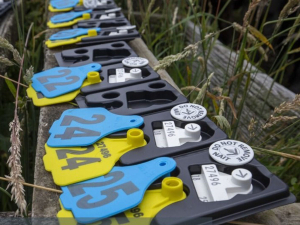Genetics, Efficiency and Performance: How the Burgesses are raising the bar at Te Poi
Bill and Michelle Burgess had an eye-opening realisation when they produced the same with fewer cows.
 OSPRI has written off nearly $17 million after a botched attempt to launch a new integrated animal disease management and traceability system.
OSPRI has written off nearly $17 million after a botched attempt to launch a new integrated animal disease management and traceability system.
Animal disease management agency OSPRI has written off nearly $17 million after a botched attempt to launch a new integrated animal disease management and traceability system.
In response OSPRI shareholders – DairyNZ, Beef and Lamb NZ and Deer Industry NZ – have announced major changes to the Information Systems Strategic Programme (ISSP) and to OSPRI’s governance structure, including the resignation of board chair.
The chairs of DairyNZ, Beef + Lamb NZ and Deer Industry NZ say they commissioned two reports on OSPRI – the first to examine the extent of the problems with the ISSP programme and the second on the organisation’s governance structure.
“Since then, we have been instigating major changes to strengthen OSPRI’s capability and transparency to help get the project back on track and ensure it won’t happen again.
“OSPRI has updated farmers this week on several developments, including a $16.6 million impairment (write-off) related to the MyOSPRI platform, next steps on the technology project, the resignation of OSPRI chair Paul Reynolds – with Fenton Wilson nominated as interim chair, and the shareholder-initiated governance changes now in place which have delivered three new OSPRI board directors.
“As a result of the review and an independent assessment of the technology, the OSPRI Board has now decided to stop work on MyOSPRI and prioritise rebuilding a NAIT system that in the future will be able to integrate with other OSPRI systems. OSPRI has advised no additional funding is required at this time.
“The most important thing for us is to ensure OSPRI is successful, and you’ll see we have taken significant and necessary steps to help enable this.”
Opsri is funded by farmer levies and a contribution from the Government through the Ministry for Primary Industries.
Shareholders changed the OSPRI constitution to implement the following governance improvements at OSPRI:
The Stakeholders’ Council has been disestablished and replaced with a Stakeholder Forum, meeting at least every six months, with an aim to facilitate deeper engagement between OSPRI and its stakeholders and enable OSPRI to receive feedback on the operation of OSPRI and its subsidiaries.
The chairs say they are “very disappointed” with the failures in the ISSP project.
“It is clear that OSPRI’s leadership and capability in relation to this technology upgrade needed significant improvements. These new arrangements, underpinned by the revised legal constitution, will enable shareholders and funders to keep OSPRI accountable for providing greater transparency, performance, and decision-making into the future.
“The improvements made give us confidence the organisation can deliver on its promise to provide a NAIT replacement system that meets the needs of New Zealand’s primary sector. We are assured that these issues do not affect the existing NAIT programme, and farmers can continue to depend on NAIT for traceability and disease management purposes.”
Additional tariffs introduced by the Chinese Government last month on beef imports should favour New Zealand farmers and exporters.
Primary sector leaders have praised the government and its officials for putting the Indian free trade deal together in just nine months.
Primary sector leaders have welcomed the announcement of a Free Trade Agreement (FTA) between India and New Zealand.
Dairy farmers are still in a good place despite volatile global milk prices.
Legal controls on the movement of fruits and vegetables are now in place in Auckland’s Mt Roskill suburb, says Biosecurity New Zealand Commissioner North Mike Inglis.
Arable growers worried that some weeds in their crops may have developed herbicide resistance can now get the suspected plants tested for free.